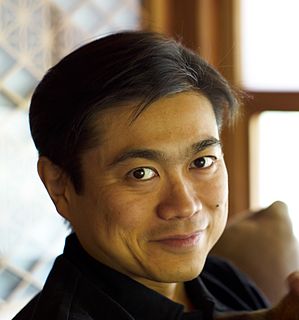A Quote by Howard Stringer
Japan can't get anything on the market very cheaply because it has a large, relatively highly paid workforce which you can't fire.
Related Quotes
The election of Shinzo Abe as the leader of Japan's ruling Liberal Democratic party and now prime minister will have profound repercussions for Japan and East Asia. Most western commentary during the premiership of Junichiro Koizumi has been concerned with the extent to which Japan has allowed a freer rein to market forces.
Take Germany and Japan, both defeated in the Second World War. Germany has acknowledged its monstrous crimes to a certain extent, has paid reparations and so on. Japan, in contrast, apologizes for nothing and has paid no reparations, with one exception: It pays reparations to the United States, but not to Asia.
The funny part of it all is that relatively few people seem to go crazy, relatively few even a little crazy or even a little weird, relatively few, and those few because they have nothing to do that is to say they have nothing to do or they do not do anything that has anything to do with the war only with food and cold and little things like that.
I remember my very first encounter with Japan. At that time, I was Deputy Mayor of St Petersburg. Out of nowhere, Japan's Consul General in St Petersburg came to my office and said Japan's Ministry of Foreign Affairs wanted to invite me to Japan. I was very surprised because I had nothing to do with Japan except being a judoka. This was an opportunity to visit Tokyo and a couple of other cities. And, you know, a capital is a capital everywhere: there is the official script and certain protocol. It is always easier to talk in the provinces, the conversation is more natural.



































